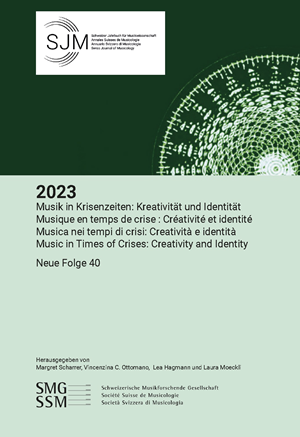Representing Insanity and the Crisis of Identity through Henry Purcell’s “Bess of Bedlam”
DOI:
https://doi.org/10.36950/sjm.40.1Schlagwörter:
Henry Purcell, “Bess of Bedlam”, mad song, Early modern popular culture, insanityAbstract
This article explores Henry Purcell’s “Bess of Bedlam” (first published in 1683), which represents insanity as a personal crisis clothed in the common musical style of the era of its origin. Despite its standard musical language, the song conveys a meaning that can speak to many generations, and those shared meanings expand the use of the work as a metaphor for the concept of insanity across time. Via this metaphorical function works such as “Bess of Bedlam” have become iconic and thought-provoking emblems of the ‘affliction’ of madness and reveal the societal conditions through which their nature and meaning can be construed. This example also points toward the medical origins of the term ‘crisis’ and how our changing portrayals of madness in musical works and in the history of their performance reflect developing notions of what kind of crisis insanity might be. “Bess of Bedlam” exemplifies the topic of insanity revealing moral and behavioural aspects of its own time and in relation to earlier and later times. With an archaeological approach via textual, intertextual, contextual, and musical analyses, this article suggests methods for understanding the layers of representation in this song within its past, present, and future environments.
Downloads
Downloads
Veröffentlicht
Ausgabe
Rubrik
Lizenz
Copyright (c) 2024 Naomi Matsumoto

Dieses Werk steht unter der Lizenz Creative Commons Namensnennung 4.0 International.


